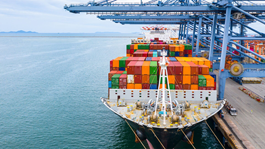One interesting area which could further drive the adoption of E-Bills is the development of E-Bills systems which use smart contract and blockchain and distributed ledger technology solutions (the technology underpinning the Bitcoin cryptocurrency). A blockchain is a digital, distributed ledger, with identical copies maintained on multiple computer systems controlled by different entities2.
These technology platforms could provide a number of exciting opportunities through the automation of contracting via smart contracting models to the automation of record-keeping with distributed ledger technology. While potential deployment of these solutions may still be some time off, bills of lading are an area of interest for technology specialists in this area.
Some existing E-Bill providers and new entrants such as Wave (a start-up backed by Barclays Bank)are already looking to develop systems which use distributed ledger technology.
There are a number of potential benefits to these new technologies, including providing transparency of transacting history and immutability of records (on current computing power), while automation provides potential for cost cutting and other efficiencies.
However, in the short-term, wide-scale adoption of these technologies may be limited. Similarly, many users are likely to have to still sign up to a multiparty contract to act as a framework under which the technology solutions will operate. This means that in the short term at least, these systems may still suffer from the same hurdles as traditional systems, in that they will need critical mass to generate sufficient incentive for wholesale adoption in the shipping industry.



